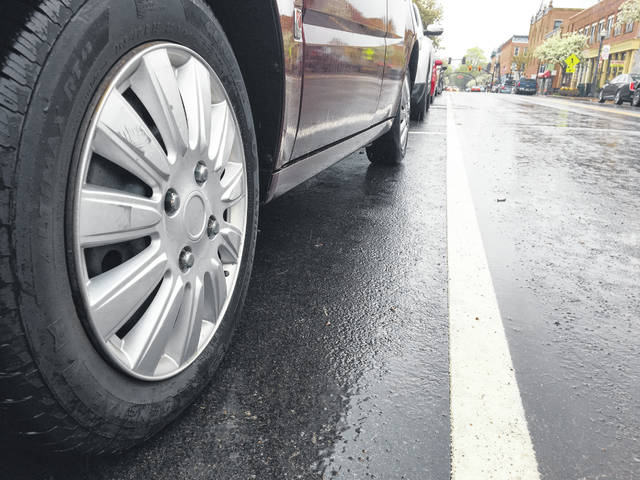
The City of Delaware Police Department will no longer be chalking vehicle tires to enforce parking time limits after the Sixth Circuit Court of Appeals determined the practice constitutes an unlawful search.
The ruling was handed down on Monday and was the result of a lawsuit against the City of Saginaw, Michigan, by Alison Patricia Taylor.
Taylor, “a frequent recipient of parking tickets,” sued the City of Saginaw and its parking officer, Tabitha Hoskins, arguing that the practice of using chalk to mark the tires of parked vehicles to track how long they have been parked violated her Fourth Amendment right to be free from unreasonable searches.
The Eastern District of Michigan originally dismissed the suit, but on Monday, the Sixth Circuit Court of Appeals reversed their decision and ruled that chalking is a regulatory exercise, not a community-caretaking function, and therefore isn’t exempt from the Fourth Amendment.
“The City does not demonstrate, in law or logic, that the need to deter drivers from exceeding the time permitted for parking — before they have even done so — is sufficient to justify a warrantless search under the community caretaker rationale,” the court wrote. “This is not to say that this exception can never apply to the warrantless search of a lawfully parked vehicle. Nor does our holding suggest that no other exceptions to the warrant requirement might apply in this case. However, on these facts and on the arguments the City proffers, the City fails to meet its burden in establishing an exception to the warrant requirement.”
On Thursday, City of Delaware Police Capt. Adam Moore said the police department has been chalking tires for “as long as anyone can remember,” but it discontinued the practice after the ruling Monday.
“We immediately came into compliance with the law,” Moore said. “We immediately discontinued chalking tires. A certain amount of this is the normal process of criminal justice work. Appellate courts (and) supreme courts issue rulings all the time that have an effect on how we go about doing our job. It’s not unusual for us to have a ruling come down that requires us to alter something we maybe have done for many, many years.”
Moore said that until Monday, chalking tires had been considered the best practice for enforcing parking, but the city is looking at other options moving forward. He added the parking officers will likely mark where the vehicle was parked with chalk on the pavement, not on the tires. Moore clarified that the ruling only applies to time-limited spots and not metered or handicapped spots.
“The aim of our parking enforcement is to cause those parking spaces to turn over and provide efficient use of parking and make those spaces available to as many people throughout the day as we possibly can,” Moore said.
Moore added the city will stay up-to-date with the case and the law in the event that the City of Saginaw takes the case to the Supreme Court and the ruling is overturned or changed.


